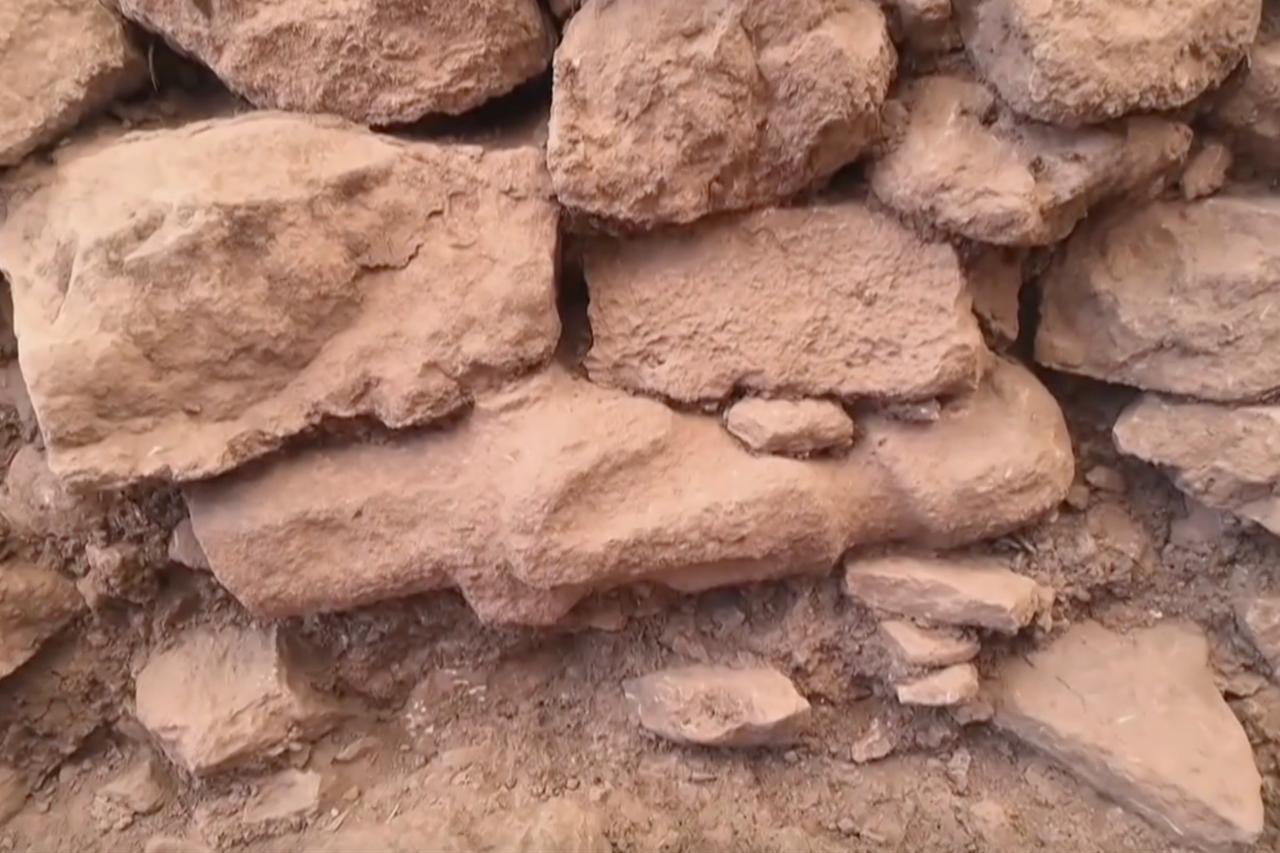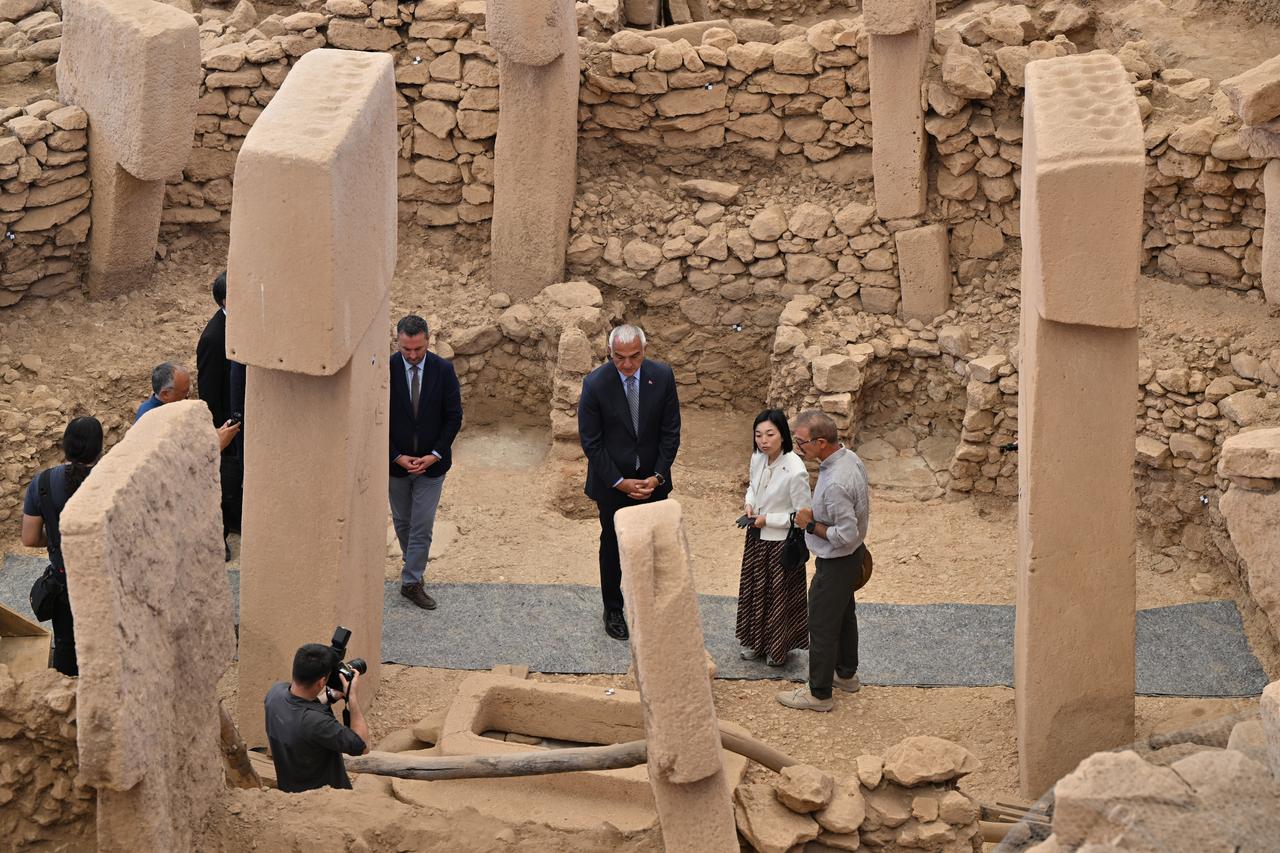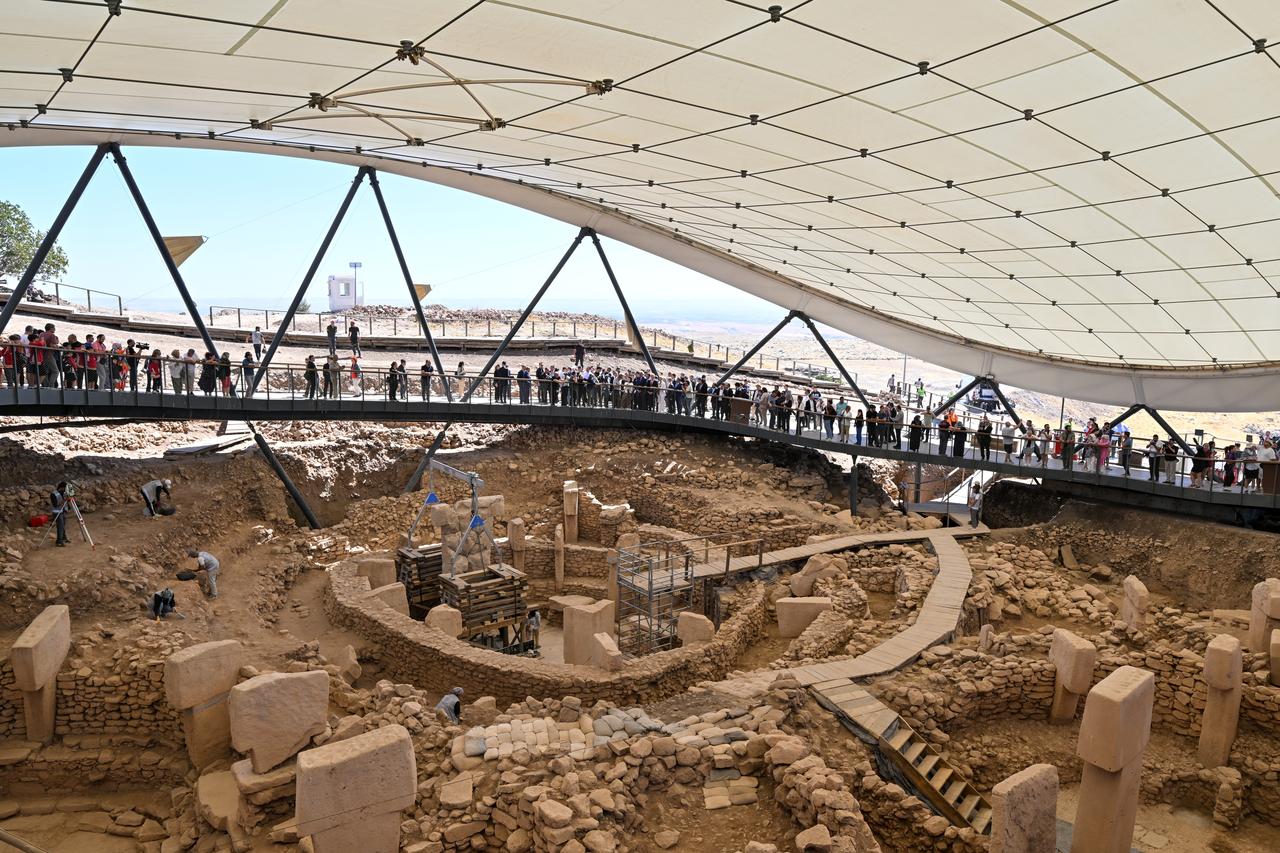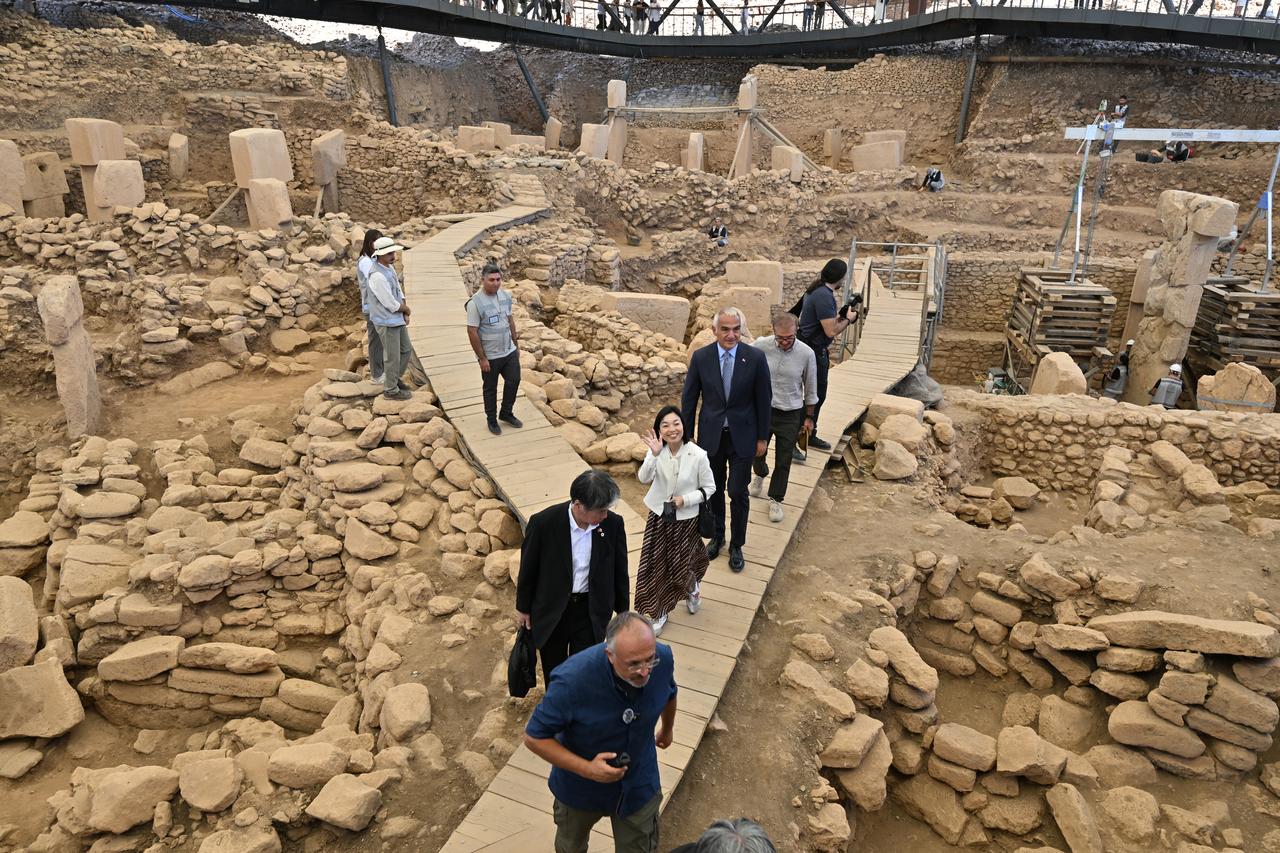
Archaeologists at Türkiye’s Gobeklitepe have uncovered a human statue embedded inside a wall, a rare find that experts say offers new insight into the rituals and belief systems of the Neolithic period.
What was the latest discovery at Gobeklitepe?
Culture and Tourism Minister Mehmet Nuri Ersoy announced the discovery during a visit to the UNESCO World Heritage site with Japan’s Princess Akiko Mikasa.
“A human statue was found mounted horizontally into a wall between structures B and D, and it is thought to have been placed as an offering,” Ersoy said.
“Similar examples had previously been found in Karahantepe, but this new find from Gobeklitepe will shed light on the rituals and belief systems of the Neolithic era.”
The statue, still in situ, was deliberately placed in the wall of a chamber. Experts describe it as life-size and stylized, providing one of the few direct examples of a ritual offering incorporated into the architecture.

Gobeklitepe, located near Sanliurfa, is considered the world’s oldest monumental religious sanctuary, dating back more than 12,000 years.
The site predates Stonehenge by 6,000 years and the Egyptian pyramids by 7,000. It consists of circular enclosures with massive T-shaped pillars decorated with carvings of animals such as snakes, foxes, and vultures.
When compared with similar finds at Karahantepe, researchers said the discovery strengthens the theory that Gobeklitepe was designed as a ritual center where human representation and ceremonial offerings were central to community life.
Restoration work continues in Gobeklitepe
The find was announced as Türkiye’s Ministry of Culture and Tourism highlighted progress on the “Legacy for the Future Project,” which combines excavation with conservation.

To handle growing interest, a visitor center, parking areas, and walking paths are scheduled to open before the end of 2025.
“We aim to manage the global interest in Gobeklitepe sustainably, ensuring that the site remains protected while allowing people to experience its unique heritage,” Ersoy said.
Geomagnetic surveys planned for October will guide the next phase of excavations.

Following last year’s exhibition at Rome’s Colosseum, which drew over six million visitors, a major exhibition will open in Berlin in 2026.
“‘Myths in Stone: Gobeklitepe and the World of the Last Hunters’ will be hosted at the James-Simon Gallery between February 5 and July 31,” Ersoy said. “Ninety-six artifacts from the Sanliurfa Museum collection will be on display.”
Ersoy thanked Princess Akiko for her visit and Japan’s support for archaeological work in Türkiye.
“Gobeklitepe is the common heritage of humanity,” he said. “Protecting it and passing it on to future generations is a responsibility we all share.”
Scholars note that discoveries at Gobeklitepe continue to challenge long-held theories about civilization’s origins.
Instead of farming leading to ritual gatherings, evidence now suggests that shared spiritual practices may have driven the shift toward agriculture and permanent settlement.